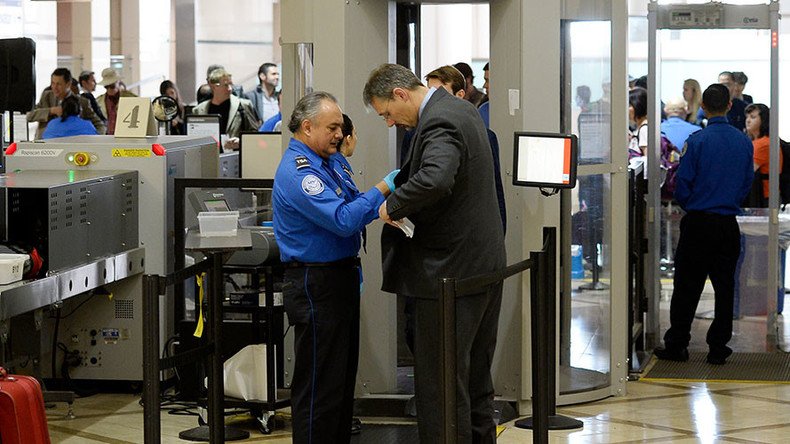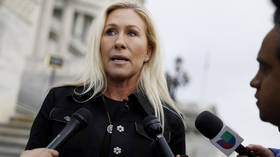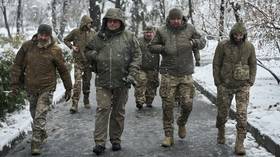TSA announces new 'more involved' full body pat-downs

Airport passengers who opt out of electronic screening will be subjected to a full pat-down, including areas such as breasts, buttocks and the groin area, according to new guidelines issued by the Transportation Security Administration.
The revised pat-down prompted the TSA to inform local police and airport police in the likelihood that someone report an “abnormal” federal frisking, according to an airport trade association memo obtained by Bloomberg News.
Until last week, TSA screens could employ any of five pat-down procedures to check the few passengers who chose not to through a millimeter wave imaging booth or walk-through metal detectors.
"I would say people who in the past would have gotten a pat-down that wasn’t involved will notice that the [new] pat-down is more involved,” TSA spokesman Bruce Anderson told the Hill.
#TSA on new #pat-down procedures: "A pat-down may include... head coverings and sensitive areas such as breasts, groin, and the buttocks."
— Cheryl Conner (@ABC7Cheryl) March 6, 2017
Now passengers will receive the same pat-down, the one previously known as the “full-pat down.”
READ MORE: TSA frisks 10-year-old girl after finding juice pouch (VIDEO)
“A pat-down may include inspection of the head, neck, arms, torso, legs and feet. This includes head coverings and sensitive areas such as breasts, groin and the buttocks,” the TSA said regarding its Pat-Down Screening instructions. “You may be required to adjust clothing during the pat-down. The officer will advise you of the procedure to help you anticipate any actions before you feel them. Pat-downs require sufficient pressure to ensure detection.”
The TSA also said that in limited cases “sensitive pat-down with the front of the hand may be needed to determine that a threat does not exist.”
A seasoned traveler flying to Egypt last Thursday was told by an agent about the new pat-down which “would involve more intense horizontal and vertical pat down” to look for concealed weapons that people typically hide in their pants.
“This was the most intriguing, intense and invasive pat-down I’ve had by the TSA since they came into existence,” Joe Stratee-McClure told WNBC. “Usually it’s comparatively perfunctory.”
Nicole Melendez, a public affairs manager at the TSA, said the procedure was streamlined to reduce confusion and lessen the cognitive burden on officers after the “TSA faced a record number of firearms detection during the week of February 20. Agents found 79 firearms, 21 of which were round chambered, setting a new record from its highest number of 18 firearms in 2014.”
The guidelines said the pat-down will be conducted by someone of the same gender as the passenger and will be witnessed by a second TSA screener of the same gender.
The same pat-down will be employed with those who set off alarms in the imaging booth or metal detector, and those singled out by bomb-sniffing dogs.
NYC airport security breach allows 11 passengers to slip through TSA unscreened https://t.co/LYwLjx3PL8pic.twitter.com/sbWyKIas87
— RT America (@RT_America) February 21, 2017
READ MORE: Woman battling breast cancer ‘humiliated’ by aggressive TSA pat down
Airport security was tightened in 2015 after a damning inspector general’s report found undercover operatives were able to slip through airport security with weapons and phony bombs more than 95 percent of the time. They were able to carry weapons and bomb-like material through airport security checkpoints in 67 of 70 attempts last year.
The TSA responded by retraining its 60,000-member workforce, opening a training academy in Georgia and bringing in new top administrators.













